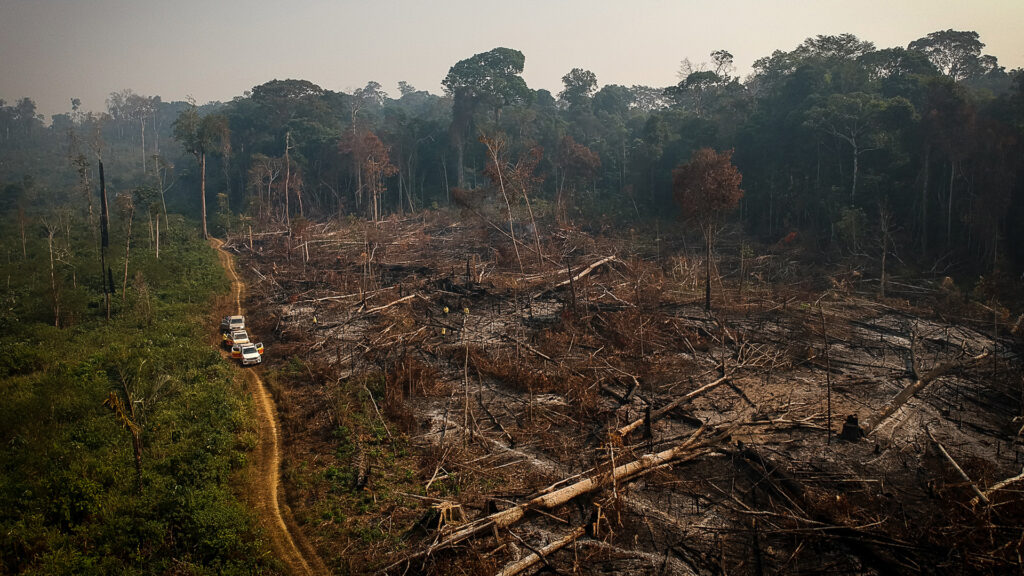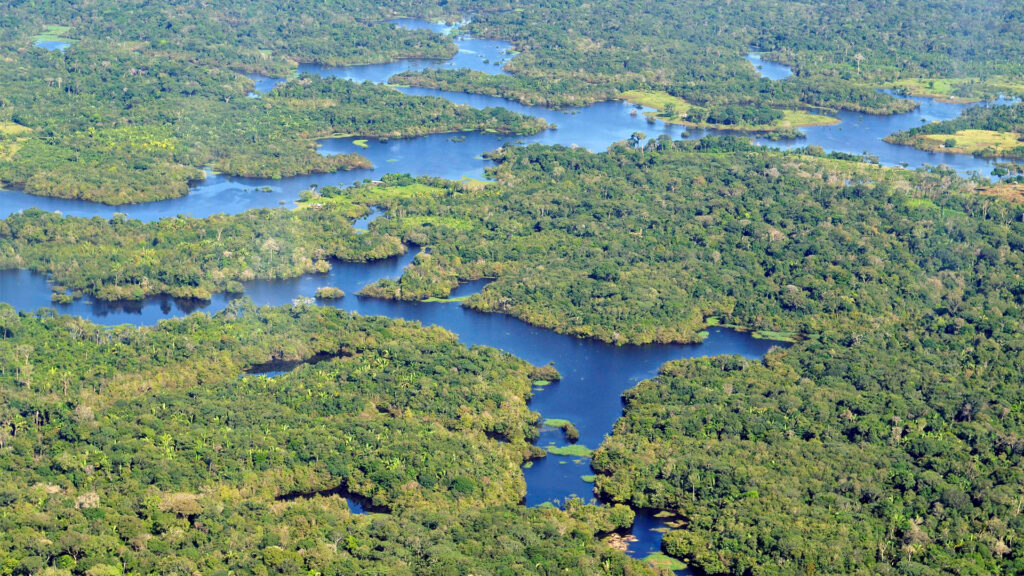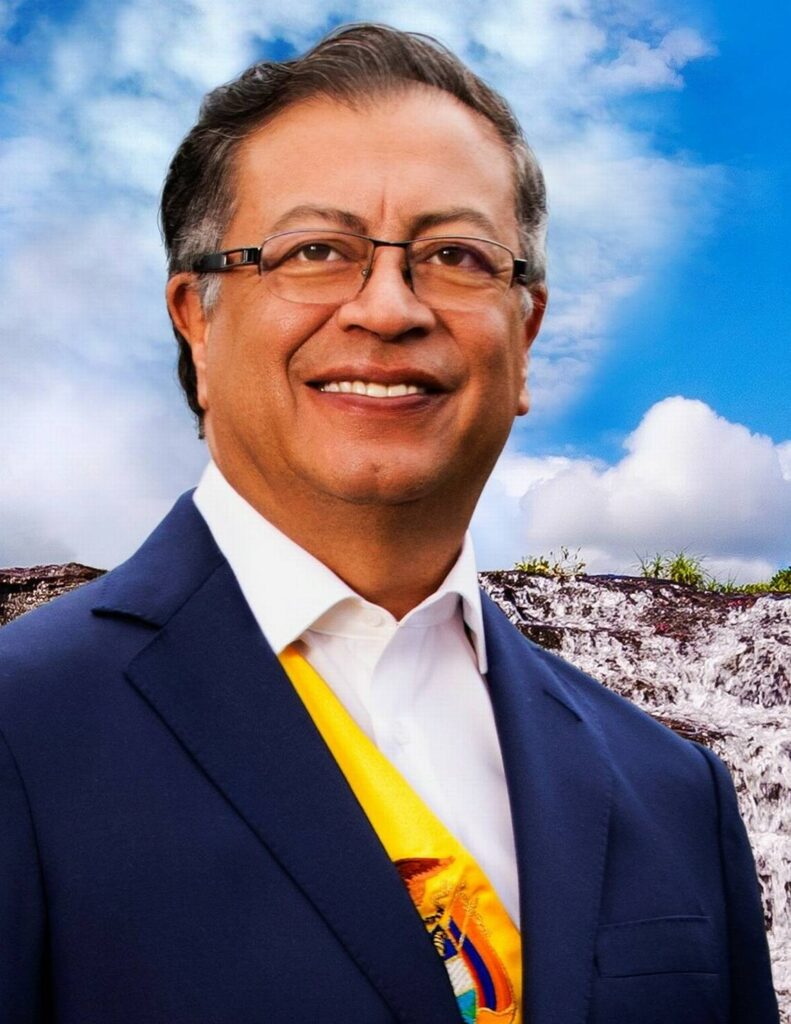By Gustavo Petro, president of the Republic of Colombia
Our fate is intertwined with that of the Amazon, regardless of where we reside. Only through global climate action can we ensure a sustainable future for our planet. As president of one of eight countries that host this vital forest, Colombia is dedicated to eradicating deforestation, but also to phasing out fossil-fuel development, as the forest’s health hinges on our fragile global climate balance.
I am calling on Amazon countries and our partners in the “Global North” to commit to phasing out fossil fuel development, and to do so in a way that protects our right to a just transition to a post-carbon world.

Environmental ministers from across Amazonia met in Leticia, Colombia, last weekend to chart a path toward next month’s Amazon Summit in Belem, Brazil, at the mouth of the Amazon River. Bold support for an action plan will be crucial at the United Nations convening in New York in September.
Undoubtedly, ending deforestation in the Amazon is fundamental. The United States is stepping up to help make this a reality with its recent pledge of $500 million to curb Amazon deforestation. However, tackling deforestation alone will fall far short of what is necessary.
Even if we get deforestation under control, the Amazon faces dire threats if global heating continues to climb. To avoid the point of no return, we need an ambitious transnational policy to phase out fossil fuels. The support of countries like the United States is vital in transforming this vision into reality.
The “Global South” countries, endowed with proven fossil-fuel reserves, confront a serious dilemma. On one hand, we could exploit these reserves to generate resources to repay our debts and invest in development, at the cost of devastating the Amazon and exacerbating the climate crisis. On the other hand, we can choose to keep the oil, gas and coal in the ground, suffering the challenging economic consequences.
This situation presents a paradox: Countries in the Global South, including Colombia, have contributed the least to historical emissions, yet we bear the brunt of the climate crisis. Meanwhile, global powers continue to amass trillions of dollars from fossil fuel production.
An alternative must emerge. It is unfair for our countries, particularly those sharing expanses of the Amazon, to shoulder the costs alone. Fortunately, there are numerous financial mechanisms that can enable Amazonian countries to implement a just energy transition.

Some mechanisms are simple, such as exchanging external debt for climate action. In the case of Colombia, we can allocate a substantial amount of resources to protect the Amazon.
Another immediate action to save the Amazon is to establish a multilateral fund that funds environmental protection services by inhabitants of these territories: workers, farmers and civil society. Transforming Amazon residents into agents of change requires compensating them for safeguarding the land they know best. Colombia has already earmarked $200 million annually for the next 20 years, and we hope that more individuals, organizations and states will contribute.
Other mechanisms are more complex, such as financial reforms — including Barbadian Prime Minister Mia Mottley’s bold Bridgetown initiative. In addition, we must consider the urgent development of a progressive global tax on fossil fuels, facilitating a fair balance between developed and developing nations, and establishing the necessary conditions to implement climate policies.
How do we start? As heads of state, we must assure the end of new oil and gas exploration in the Amazon. We must exhibit courage, even as we address fundamental social issues within our countries, exacerbated by a cost of living crisis and rampant inflation. We expect our colleagues in the Global North to demonstrate the same level of boldness and compromise. This is the only way we can pave the way for a livable planet in the future.

While the United States’ pledge for an Amazon Fund is significant, it falls short of what is truly needed. As the wealthiest nation on Earth and one of the largest greenhouse gas emitters, the United States must fully engage in this movement. The United States has the potential to lead and accelerate the transition to a low-carbon economy.
Maintaining the status quo will not save the world from the catastrophic climate and ecological emergency. The Amazon is calling out for urgent action. Let’s heed its call, not only for the sake of the Amazon itself but for the future of humanity. We are all interconnected in confronting the threat of the climate emergency (as evidenced by the blanket of smoke that recently engulfed much of North America). It is time to translate our good intentions into concrete actions, for the sake of our communities, our rural workers, our indigenous groups, our planet and the well-being of future generations.
Gustavo Petro is president of the Republic of Colombia. This opinion piece was originally published by the Miami Herald, which is a media partner of The Invading Sea.
If you are interested in submitting an opinion piece to The Invading Sea, email Editor Nathan Crabbe at ncrabbe@fau.edu. Sign up for The Invading Sea newsletter by visiting here.



